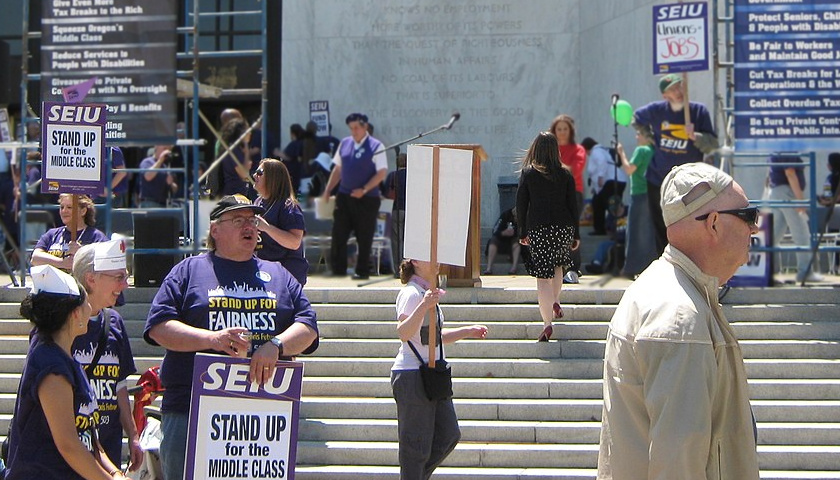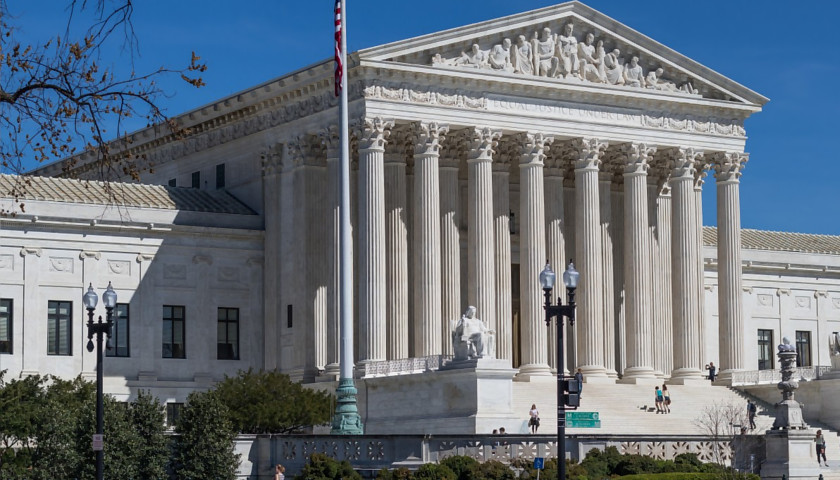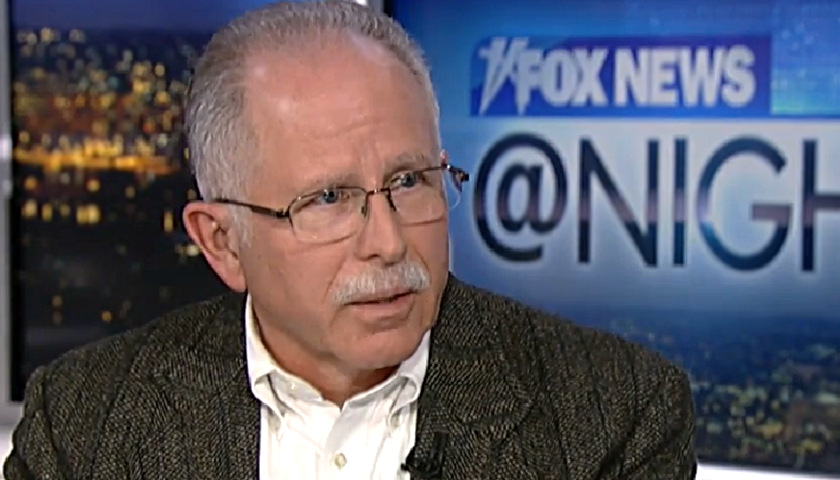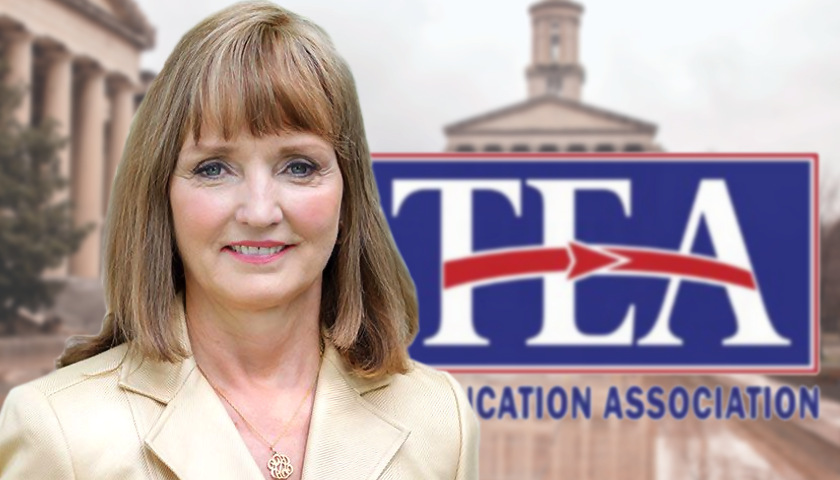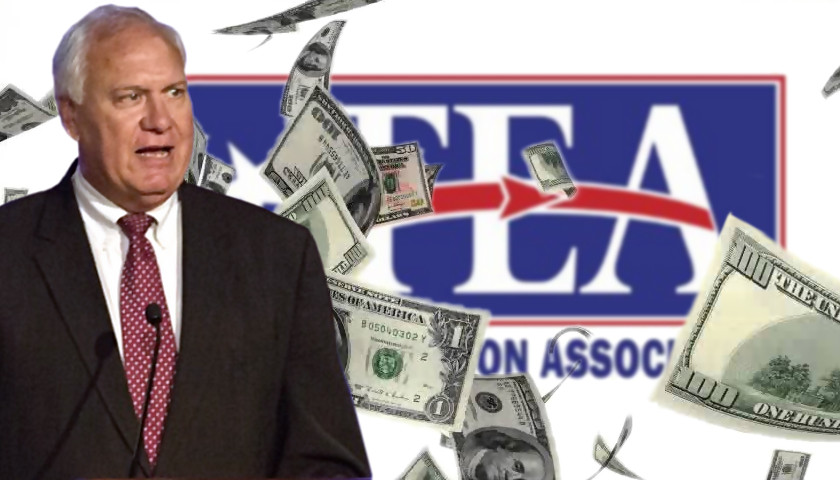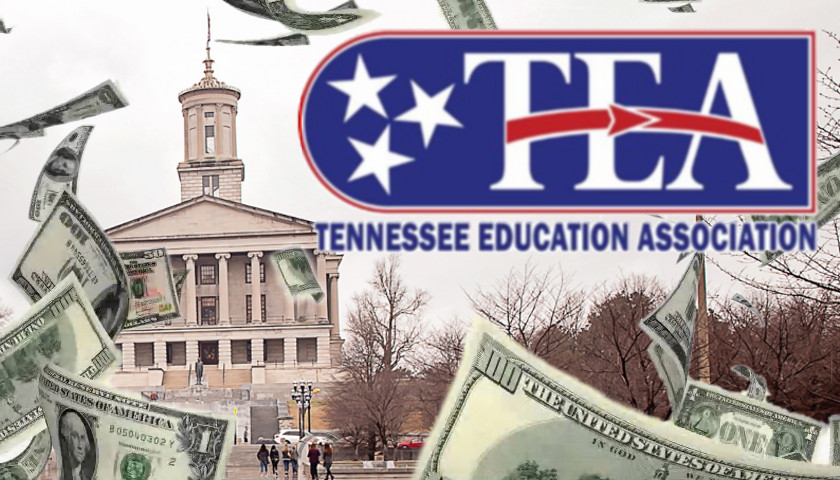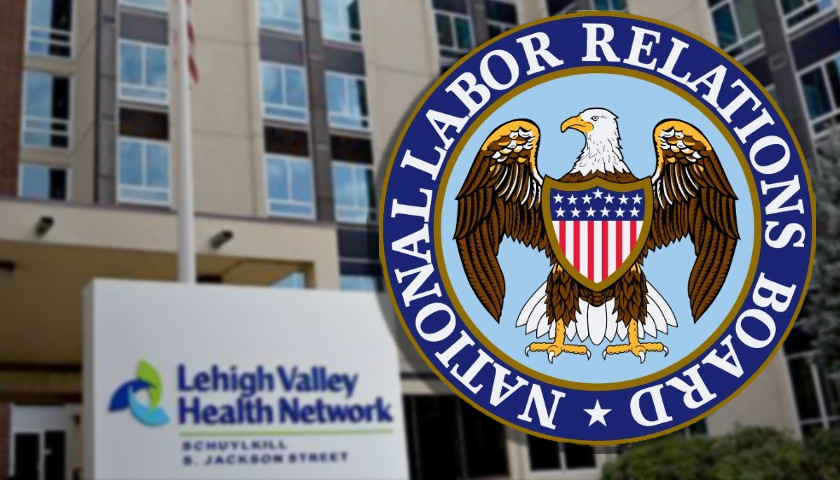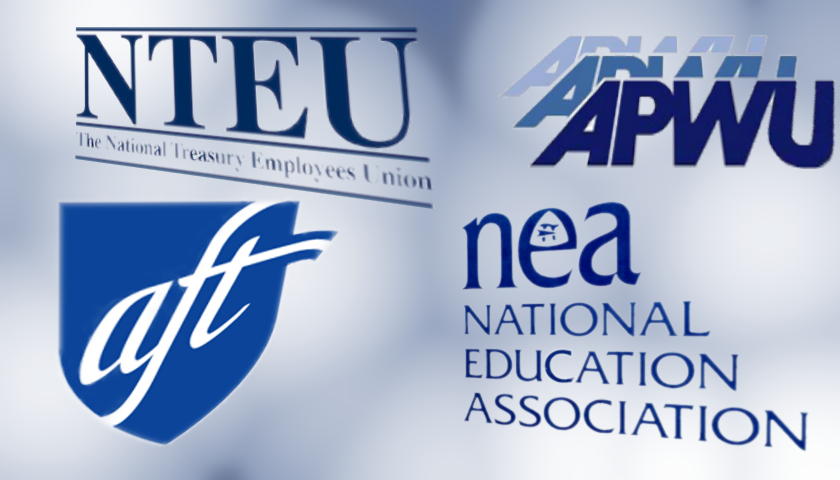On February 13th, the Citizens for Community Values will join with a group of concerned parents to hold a press conference, imploring the Ohio legislature to expand access to EDChoice Scholarships. Since 2005, EdChoice scholarships have existed been a statewide initiative that gives students the opportunity to receive scholarships to attend private schools, should their local public school perform poorly. The Ohio Department of Education rates each school and district on six components then assigns an overall grade. Overall, Toledo public high schools currently have an “F.” In four of six categories; Achievement, Gap Closing, Graduation Rate, and Prepared for Success, Toledo also has an F. In the remaining 2; Improving At-Risk K-3 Readers and Progress, the district received a “D.” Many local parents have reservations in sending their children to these schools. The concerned parents organizing the press conference all have children who attend private schools local to Toledo, many of which will be entering high school soon. Due to a provision within the law, these private school students, who are not currently receiving scholarships, are ineligible to receive these funds for high school. Therefore, they would have no choice to attend the local public schools or try to pay out-of-pocket, which is an unrealistic expense…
Read the full storyTag: union
Public Sector Unions Make Up Half of All Union Membership
by Richard McCarty Public sector unions have long exploited taxpayers by pushing for higher taxes, higher spending, and generous benefits and extravagant pensions for government workers while opposing measures to hold bureaucrats accountable. Fortunately, the U.S. Supreme Court’s Janus decision, which gave government workers a choice of whether to belong to a public employee union, has started to erode some of these unions’ excessive power. Yet much work remains to be done to make government bureaucracies more efficient and responsive to elected officials and to the public. Although the public sector is much smaller than the private sector, public sector union members make up nearly half of all union members. In fact, of the nation’s 14.8 million union members, there are 7.2 million public sector union members and 7.6 million private sector union members. The near parity between public sector union membership and private sector union membership is only possible because the union membership rate is more than five times higher in the public sector than in the private sector: 34.4 percent of the public sector is unionized while only 6.5 percent of the private sector is unionized. The five largest public employee unions, which claim to represent several million current and former government workers, are the National Education Association…
Read the full storyReport: Machines to Handle Over Half Workplace Tasks by 2025
More than half of all workplace tasks will be carried out by machines by 2025, organizers of the Davos economic forum said in a report released Monday that highlights the speed with which the labor market will change in coming years. The World Economic Forum estimates that machines will be responsible for 52 percent of the division of labor as share of hours within seven years, up from just 29 percent today. By 2022, the report says, roughly 75 million jobs worldwide will be lost, but that could be more than offset by the creation of 133 million new jobs. A major challenge, however, will be training and re-training employees for that new world of work. “By 2025, the majority of workplace tasks in existence today will be performed by machines or algorithms. At the same time a greater number of new jobs will be created,” said Saadia Zahidi, a WEF board member. “Our research suggests that neither businesses nor governments have fully grasped the size of this key challenge of the Fourth Industrial Revolution.” The “Future of Jobs 2018” report, the second of its kind, is based on a survey of executives representing 15 million employees in 20 economies.…
Read the full storyStorm Clouds Gather Over Nation’s Largest Union as Legal Protections Fall Away
By Richard McCarty The nation’s largest union had a run of good luck during the Obama years, but the last couple of years have been rough for the Service Employees International Union (SEIU). For those not familiar with the union, SEIU claims 2 million members and is composed of janitors, security guards, child care workers, health care workers, bus drivers, social workers, grad students, and adjunct professors, among others. During the 2016 election, SEIU vainly spent millions of dollars trying to elect Hillary Clinton. Weeks after Clinton lost, SEIU Texas declared bankruptcy, and SEIU International President Mary Kay Henry announced the union must plan for a 30 percent cut in SEIU International’s budget by the start of this year. SEIU Texas filed for bankruptcy because it had lost a lawsuit and been ordered to pay $7.8 million to Professional Janitorial Services. The union had been angry that the company’s president refused to waive a secret-ballot unionization election so it had unfairly and maliciously attacked the company causing it to lose clients. Last summer, SEIU International bailed out SEIU Texas and confidentially settled the case. Elsewhere, due to allegations of sexual harassment, three SEIU employees have been fired, two resigned, and another was suspended over the past year. Of these six employees,…
Read the full storyThe Janus Decision Scored a Major Win for Workers’ Rights – Here’s What Should Come Next
by David Kreutzer and Rachel Greszler Last month’s Supreme Court decision in Janus v. American Federation of State, County, and Municipal Employees hit public-sector unions like a bombshell. Now that public-sector unions can no longer extract union fees from workers who want nothing to do with them, public unions will have to work harder to provide services that will prompt workers to join their ranks. The question explored in the Janus case was whether or not forcing non-members to pay union dues violates their First Amendment rights. That issue was addressed narrowly as a matter of free speech, but more broadly it had much to do with wrongful coercion. Both members and non-members of public-sector unions can opt out of paying the portion of dues that explicitly goes to the union’s political activities. But, until recently, non-members could still be forced by law to pay what was called a “fair share” fee, because even non-members could receive the benefits of union representation (since unions have a monopoly on worker-employer negotiations). [ The liberal Left continue to push their radical agenda against American values. The good news is there is a solution. Find out more ] Those forced fees would not explicitly go toward…
Read the full storyPresident Trump Moves to Protect Home Care Workers from Union Shakedown
By Richard McCarty The Centers for Medicare and Medicaid Services, a part of the U.S. Department of Health and Human Services, has proposed rolling back an Obama-Era regulation that allowed union dues to be deducted from Medicaid checks. If the proposed regulation takes effect, only deductions specifically allowed by law, such as court-ordered wage garnishments or child support payments, will be permissible. Of course, any caregivers who wish to join or stay in a union could still do so. They would just need to make arrangements to pay their dues, which could easily be done by authorizing the union to draft money from their bank account. For years, the Service Employees International Union (SEIU) has skimmed money off of Medicaid checks sent to in-home personal care workers. Many of these people care for relatives or friends and did not want to join a union. In Minnesota, 27,000 caregivers were unionized after an election in which fewer than 6,000 voted and SEIU received less than 3,600 votes. Unsurprisingly, some had no idea when the unionization election was being held and were surprised when they noticed that money had been deducted from their Medicaid checks without their authorization. Of course, SEIU does little for…
Read the full storyWoman Claiming to be Union Member from Nashville Leaves Foul-Mouthed Voice Mail at Think Tank That Filed Amicus Brief Cited by SCOTUS in Janus Decision
A woman claiming to be a union member from Nashville left a foul-mouthed voice mail last week at the offices of the Mackinac Center, the Michigan-based think tank that filed an amicus brief in the Janus v. AFSCME lawsuit in which the Supreme Court ruled employees could not be required to make donations to a union if they chose not to. In an email and phone exchange with The Tennessee Star, Mackinac Center’s Vice President for Strategic Outreach & Communications Lindsay Killen shared details about the foul-mouthed message. Killen wrote: We received this voicemail from Ann Barnett, a union member from Nashville who called Mackinac Center’s My Pay My Say campaign call center. My Pay My Say is a national education and awareness campaign to inform public employees that their First Amendment rights to free speech and association have been restored by the Supreme Court in the Janus v. AFSCME case – no longer must they pay fees to a government union just to keep their jobs. Ann Barnett’s voicemail was a vulgar and outraged response to the fact that we would dare to inform public employees about their right to choose whether to continue pay for union activities that…
Read the full storyCommentary: Janus Decision Likely to Be Good for Government Workers
By Richard McCarty For over a decade, Mark Janus has had to pay fees to a union to keep his job as a child support specialist at the Illinois Department of Healthcare and Family Services. Believing that he should not be forced to pay these fees to a union whose views he opposes, Janus filed a lawsuit against the American Federation of State, County, and Municipal Employees (AFSCME), Council 31. In February, the Supreme Court heard arguments in the case, and the Court could issue its ruling any day now. The Janus decision is likely to upend the status quo in much of the country where public unions have been able to coast along forcing workers to pay agency fees without having to sell workers on the benefits of union membership. What are agency fees? Agency fees are fees that non-union members are required to pay to unions to keep their jobs in some states. Agency fees are set by the union, and the cost of agency fees is typically between 80 percent and 90 percent of the cost of union dues. The purported reason for these agency fees is to prevent workers from benefitting from unions without contributing to them. Of…
Read the full storyBeth Harwell Locks Down Teachers’ Union Endorsement for Governor
The Tennessee Education Association Fund for Children and Public Education (TEA-FCPE), which is the PAC and political arm for the teachers’ union in Tennessee, has endorsed House Speaker Beth Harwell for the Republican nomination for Governor. The TEA’s PAC also endorsed House Minority Leader Craig Fitzhugh in the Democratic Party primary. Harwell welcomed the endorsement: “I am honored to receive the endorsement of the Tennessee Education Association,” Harwell said. “Education is my top priority, and as Speaker of the Tennessee House of Representatives, I have led some of our boldest reforms that resulted in Tennessee being one of the fastest improving states in education.” “As a former teacher, I understand and value the work our educators do day-in and day-out, and I am grateful for TEA’s support,” Harwell went on to say. “As governor, I will continue to have an open door and listening ear for teachers and parents, always keeping in mind the best interests of students who represent the future of Tennessee.” The endorsement of the liberal TEA will not play well for Harwell in a contested Republican Primary for Governor. A Tennessee Star Poll conducted a few months ago reveals that accepting TEA money and support may…
Read the full storyJC Bowman Commentary: Keeping Union Members Trapped
An expected U.S. Supreme Court decision, will change the political landscape. And unions are desperately trying to hold on to their political power after Janus v. American Federation of State, County and Municipal Employees is ruled on, the political landscape may very well change.
Read the full storySteve Gill Commentary: Teacher’s Union Salaries Far Exceed Payments to Classroom Teachers
The State Board of Education instituted a minimum teacher’s salary of $33,745 in 2017, which essentially established a starting salary for the approximately 10 months a year that teachers work each year. Overall, Tennessee teachers receive an average annual salary of over $50,000. How does that stack up against income earners across the country? According to the National Taxpayers Union (ntu.org) the starting salary for most teachers would place the near the top half of income earners. The AVERAGE teacher salary would place an individual teacher at about the top THIRD of income earners. There is no question that the best teachers deserve better compensation, but education bureaucrats and the teachers’ unions have long fought to preserve a system that essentially pays the best and the worst the same amount. Every day, millions of teachers’ union members have money taken from their paychecks to support their union’s liberal political agenda. The TEA/NEA use teachers’ dues money to almost exclusively support the Democratic Party nationally. The activism of the TEA/NEA nationally includes endorsements of candidates like Hillary Clinton, demonizing 2nd Amendment advocates, and supporting abortion with donations to Planned Parenthood . Are Tennessee teachers’ union dues being used to promote their own beliefs…
Read the full storyCommentary: The SEIU Is No One’s Friend
By Richard McCarty The Service Employees International Union (SEIU) is one of the largest, wealthiest, and most powerful unions in the country. Unfortunately, because SEIU is exploitative, fundamentally dishonest, and unethical, it’s also one of the last organizations anyone should ever want on their side. For example, one of the ways that SEIU manages to collect over $300 million a year is by skimming union dues off of the Medicaid checks that are sent to provide care for sick and disabled people. Most of the home health care providers receiving these checks never asked SEIU to “represent” them, but instead had the union imposed on them. In fact, many of these caregivers have tried to leave the union, but SEIU has schemed and fought to keep collecting their dues money. In 2014, the Supreme Court ruled that home health care providers cannot be forced to join or pay fees to a union. In the wake of this decision, the right-leaning Freedom Foundation began working to notify Washington State caregivers that they could opt out of paying union dues. Unwilling to let its members leave without a fight, SEIU went to war with the nonprofit foundation. One of the shady…
Read the full storyTeachers Union Money and Support May Be Toxic in GOP Legislative Primaries
With a huge number of vacancies in State House and Senate seats in 2018, many due to retirements and others due to Members accepting political appointments or seeking other offices, there will be a historic number of contested seats in the August, 2018 Republican primary election. Republicans currently enjoy supermajorities in both the House and Senate, so the primary elections are tantamount to winning the seat in many cases. In recent years the Tennessee Education Association (TEA) has recognized the political realities in the state and started moving from previously supporting only Democrats in state legislative races to putting increasingly significant resources into both the Republican caucuses and individual campaigns. However, a new Tennessee Star poll reveals that accepting TEA money and support may come at a high cost for candidates in Republican primaries. The Tennessee Star Poll was conducted by Triton Polling December 12-18, 2017 and included 1000 likely GOP Primary voters from across the state. Respondents were asked: The Tennessee Education Association and National Education Association are unions that use Tennessee teachers’ dues to oppose the Second Amendment, support Planned Parenthood, and attempt to elect political candidates like Hillary Clinton. Would you be more likely or less likely…
Read the full storyHospital Workers Want to Throw Off a Union They Never Wanted to Join
Employees at a hospital in Pennsylvania are petitioning the National Labor Relations Board to overturn a board regional director’s decision to unionize the workers without their consent. Lehigh Valley Hospital-Schuylkill East’s 160 workers were forced into a union membership with the Service Employees International Union through the “accretion doctrine,” a policy that allows the NLRB to…
Read the full storyUnions Offer the Same Old Song and Dance
By J.C. Bowman and Justin Owen This week is National Employee Freedom Week. From August 20 to 26, we celebrate Americans’ right to work freely of compulsory union representation, as well as every citizen’s right to join a union if he or she believes it is in his or her best interest. However, for Tennessee teachers, that freedom comes with some limits. A simple glance at the half page of fine print on Tennessee’s National Education Association affiliate’s membership application offers troubling music for union members’ ears. First up is the “Hotel California” clause. You can check out of the union anytime you like, but you can rarely leave. In order to withdraw from your union, you must provide written notice of termination to multiple entities prior to September 1 each year (how far in advance the notice can be sent is unclear). Otherwise, you are locked in for an entire year. And the key statement on the application form is revocation will only be acted upon in accordance with the established policy of the union board. That’s right, the union leadership decides if you get out of the union based on their policies, not based on your…
Read the full storyUnited Auto Workers Suffer Another Crushing Defeat as Nissan’s Mississippi Employees Reject the Union 2-to-1
Since 2012, the UAW has desperately worked to shore up it’s dwindling numbers – as well as gain a semblance of presence in the South – by unionizing the Canton, Mississippi Nissan plant’s over 6,000 workers. Three weeks ago, union activists passed a significant hurdle when the petition to unionize earned the minimum number of signatures to trigger a vote by employees. The UAW’s pitch was as predictable as it was repetitious, casting Nissan corporation and the Canton plant’s management as abusive, dishonest and racist. “Nissan spends hundreds of millions of dollars a year marketing itself as a socially responsible carmaker, even going so far as to brag about its appeal to African-American car buyers,” Rahmeel Nash, a longtime worker at the plant, said in a UAW statement July 11. “But behind the scenes, the company is violating the labor rights of African-American workers who make those cars.” For three weeks the UAW accelerated its efforts to convince the Mississippi workers to unionize, often relying on civil-right rhetoric and clergy to make the case for them. “Some of the issues I gather in the Nissan plant are similar to the issues in Chattanooga and elsewhere,” said Daniel Cornfield, a labor expert at Vanderbilt University…
Read the full storyLetter to the Editor: Mandatory Union Dues Fund Leftist Causes at the Expense of Conservative Union Members
Dear Tennessee Star, It really is simple the more members who pay union dues affords greater political clout for that union and feed the union bureaucracy. Most people still have a lot to learn about unions, especially in education. Many have likened unions to being an ATM to left-wing politicians and causes. Too many people vaguely equate the union with that classroom teacher whom they know and respect, not with the hard-as-nails political entity that dictates bad school policy. It makes little sense for teachers to contribute their hard-earned dollars to political and ideological causes they oppose. For example, a teacher union’s goal, of course, is political power, not education. This means of course they funnel union money to politicians who support their agenda. So how do the government unions, whose leaders run to the left of the average worker, get away with spending dues dollars on candidates and causes that so many of its members revile? The answer very simply is because its members let them. In fact, in all elections since 1989, the American Federation of Teachers (AFT) has given $76,446,797 to Democrats and liberals and just $363,000 to Republicans and conservatives. In other words, less than…
Read the full story



